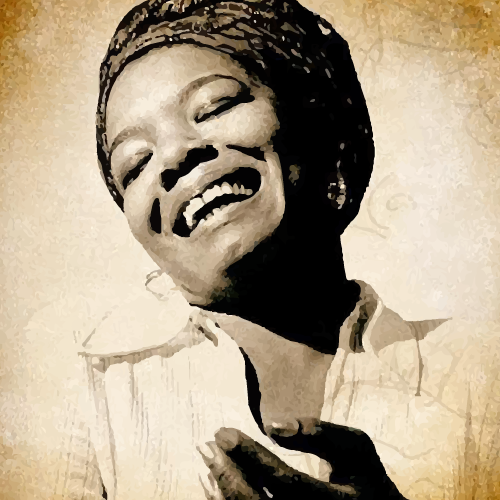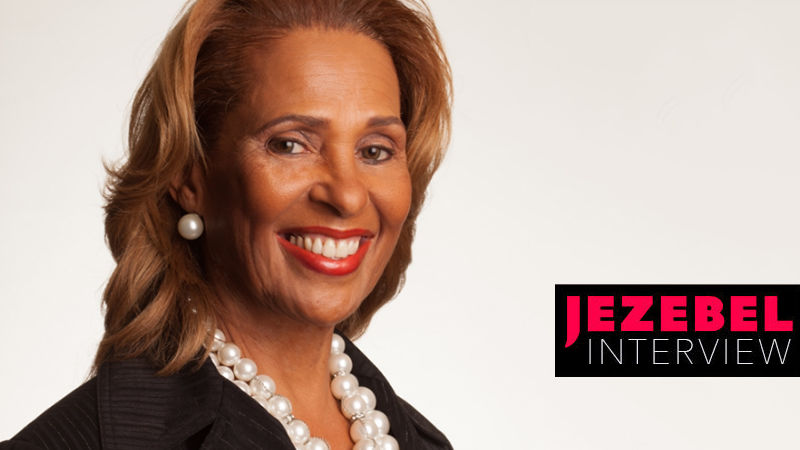One of my earliest memories of Mamma, of my grandmother, is a glimpse of a tall cinnamon-colored woman with a deep, soft voice, standing thousands of feet up in the air on nothing visible. That incredible vision was the result of what my imagination would do each time Mamma drew herself up to her full six feet, clasped her hands behind her back, looked up into the distant sky, and said “I will step out on the word of God.”
—Maya Angelou, Wouldn’t Take Nothing For My Journey Now, Random House, 1993
Maya and Bailey’s paternal grandmother, “a church-going, God-fearing woman whose store is the heart of black socializing in Stamps”. She is the most important influence in Maya’s life. Momma deals with racism by submitting to it without a struggle and by developing “a strategy of obedience”, believing that to do any differently would be unsafe. Momma is tall, over six feet, and is very strong physically. She is wise, hard-working, and a good businesswoman. She is undemonstrative in her love for Maya but “uncompromising in that love”. As Angelou writes, “A deep-brooding love hung over everything she touched”.
Annie Henderson was the proprietor of the only general store in the Black community, no mean feat for a woman, especially a barely literate Black woman in that place and time. That store was the result of years of hard labor cooking and selling food to the cotton and sawmill workers, and a shrewd business instinct. She lived and worked there with her other son, the children’s Uncle Willie, who as a child had been badly crippled in an accident. The store was a focal point for the Black community and a never- ending source of wonder for Maya and her brother.
Annie Henderson was a woman with a deep faith, unflinching honesty, profound wisdom and an abiding love for her family, which informed the life lessons she sought to teach her grandchildren: “At least ten times a year my grandmother would tell me… “Sister, if you see something you don’t like, do everything you can do, that’s right to do, to change it. And if you can’t change it, change the way you think about it.” Over the years, I learned how absolutely right she was.” (Jann Malone, “The Passions of Maya Angelou,” Times-Dispatch, March 25, 2007)




